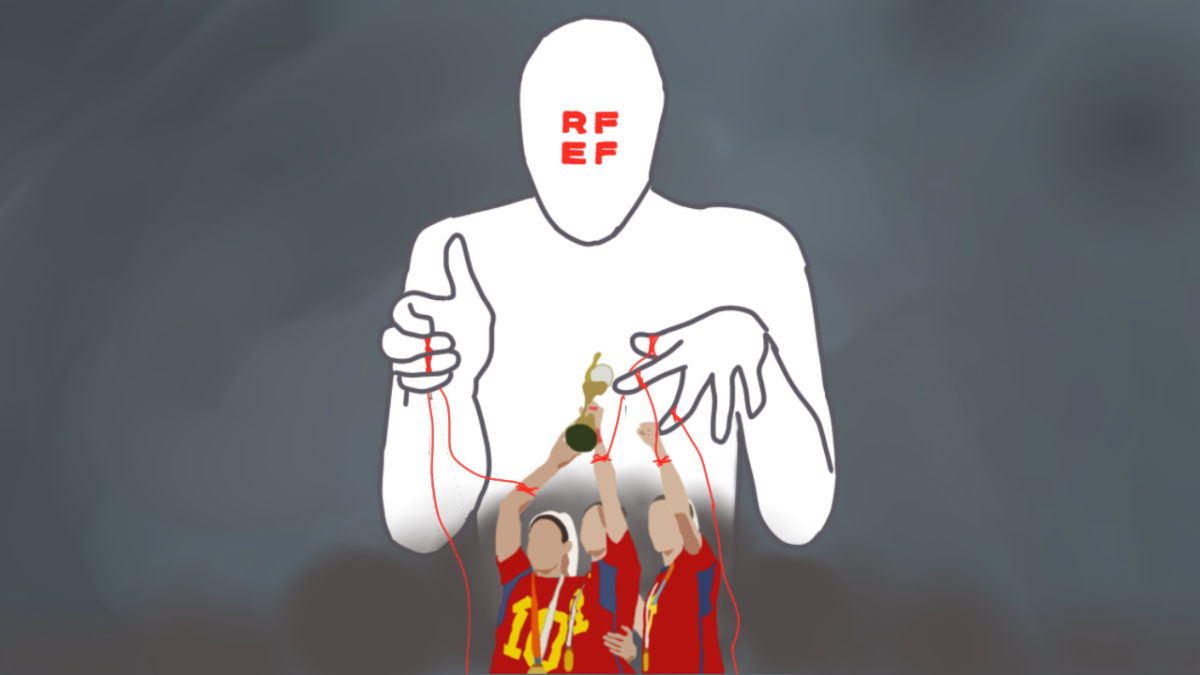Imagine the joy of winning the FIFA Women’s World Cup for the first time in your country’s history. A crowd of 75,784 people cheering as you accept your trophy. This moment was supposed to be one of the best memories of your life, but for Spanish Footballer Jenni Hermoso, it was a nightmare.
It’s a tradition for officials from FIFA and the winning nation to congratulate the players. Royal Spanish Football Federation (RFEF) president Luis Rubiales was one of these officials. As Hermoso approached Rubiales, expecting a hug from him, Rubiales suddenly kissed her on the lips.
When news first broke out about the kiss, the RFEF released a statement in which they claimed that Hermoso said the kiss was consensual, according to Forbes. It was not until later that Hermoso accused Rubiales of sexual misconduct and coercion for the kiss.
“I feel the need to denounce what happened because I believe that no person, in any work, sports or social environment, should be a victim of this type of non-consensual behavior,” Hermoso said in a post on Instagram. “I felt vulnerable and a victim of an impulse-driven, sexist, out of place act without any consent on my part.”
Rubiales finally resigned on Sept. 11, after three weeks of backlash. However, the RFEF’s decision to make false claims instead of addressing the issue demonstrates the toxic misogyny prevalent in the organization. The RFEF decided against supporting a victim and instead doubled down to support the assaulter. This reveals a bigger issue that the RFEF only cared about the kiss because of the international backlash it received. It is likely that Rubiales would not have been forced to resign if the backlash was not present.
In an assembly with other RFEF members, Rubiales stated the kiss was “mutual” and the same kind he would give to his daughters, according to Forbes. However, Hermoso is not his daughter. The employer-employee power imbalance makes the kiss problematic, even if it was “consensual.” The fact that the RFEF supported Rubiales for his wrongdoings represents how the players are being mistreated in the workplace environment. If it were not for the backlash, the players’ voices wouldn’t have been heard.
“At the end of the day, she said that it made her uncomfortable and it wasn’t consent,” chemistry teacher and head girl’s soccer coach Jeralyn Newton said. “So that should be heard. And that should be it. There shouldn’t be any other questioning, investigations or anything else. That should have been enough to quiet everybody and to take proper action.”
The way RFEF has treated complaints by their female players emphasizes their lack of support for cases of mistreatment. Until the people in charge achieve actual systemic change within the federation, these problems will last. Hermoso might not be the last of these cases, but let’s hope she is the change needed for the conditions to improve for these players.





